Policy & Regulation
-
Facebook
-
Twitter
-
Linkedin
This category explores the fundamental science behind how cancer begins, develops, and spreads. Articles in this section delve into the genetic mutations, molecular pathways, and cellular processes that drive cancer progression. Topics may include tumor microenvironments, genomic instability, cell signaling, DNA repair mechanisms, and emerging insights into metastasis and inflammation in cancer. By understanding these biological foundations, researchers can identify new targets for future diagnostics and therapies.

New discovery may help stop pancreatic cancer from spreading
Scientists at the Garvan Institute of Medical Research have found that pancreatic cancer uses a key metabolic switch to help it spread.

The Tropical Fruit Juice That Can Prevent Prostate Cancer And Speed Up Muscle Recovery
Getting to the end of a tough workout may be mentally satisfying, but the exertion can leave your muscles feeling drained, achy, and rubbery.
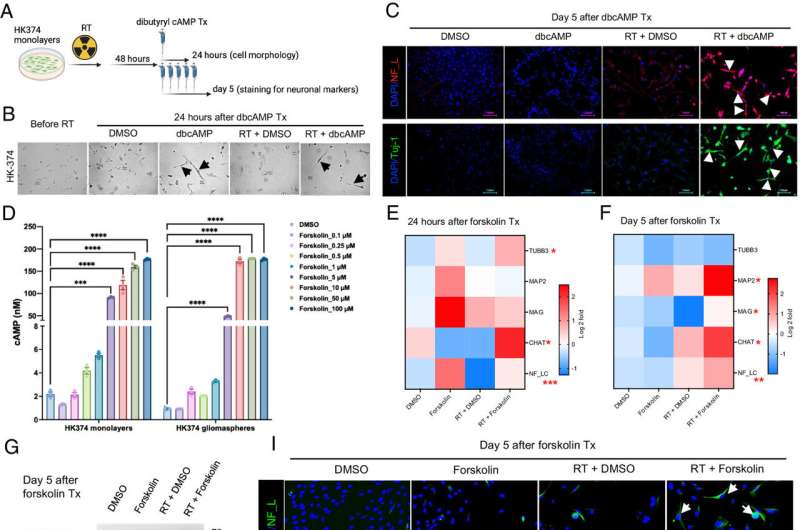
Glioblastoma treatment strategy reprograms cancer cells, halting tumor growth
UCLA scientists have identified a potential new strategy for treating glioblastoma, the deadliest form of brain cancer, by reprogramming aggressive cancer cells into harmless ones.

New Hope For Bladder Cancer Patients Like Broadcaster Terry Bradshaw; Saving The Bladder & Avoiding Cancer Spread With A New Protocol
An ongoing clinical trial is suggesting that a certain type of treatment for muscle-invasive bladder cancer—noadjuvant chemoimmunotherapy followed by risk-adapted therapy—offered better rates of metastasis-free survival and helped patients keep their bladders.
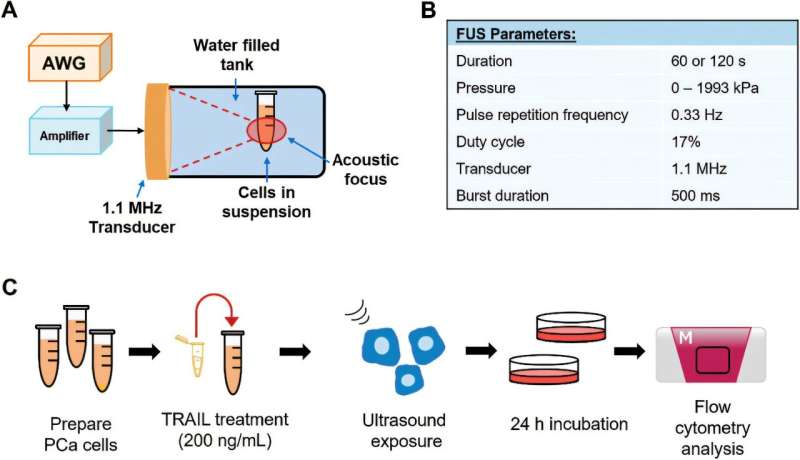
Combining protein therapy and focused ultrasound therapy can improve cancer treatment
Combining an existing small-molecule protein therapy called tumor necrosis factor related apoptosis-inducing ligand (TRAIL) with focused ultrasound (FUS) can significantly reduce tumor size and burden in prostate cancer models, according to a new study published in Advanced Science by researchers at Rice University and Vanderbilt University.

Are These Cancer-Preventing Habits A Part Of Your Routine? (Because They Should Be)
A certain amount of cancer risk has to do with your DNA, but epigenetics (i.e., lifestyle choices and environment) also plays a significant role.

Quantum camera could help detect cancer as soon as it forms
The imminent development of quantum cameras promises to transform many sectors, starting with medicine.

Talazoparib + Enzalutamide Tied to Improved Overall Survival in Metastatic Prostate Cancer
WEDNESDAY, Feb. 19, 2025 (HealthDay News) — For patients with metastatic castration-resistant prostate cancer (mCRPC) unselected for homologous recombination repair (HRR) gene alterations, talazoparib (TALA) + enzalutamide (ENZA) is associated with improved overall survival versus placebo + ENZA, according to a study presented at the American Society of Clinical Oncology annual Genitourinary Cancers Symposium, held from Feb. 13 to 15 in San Francisco.
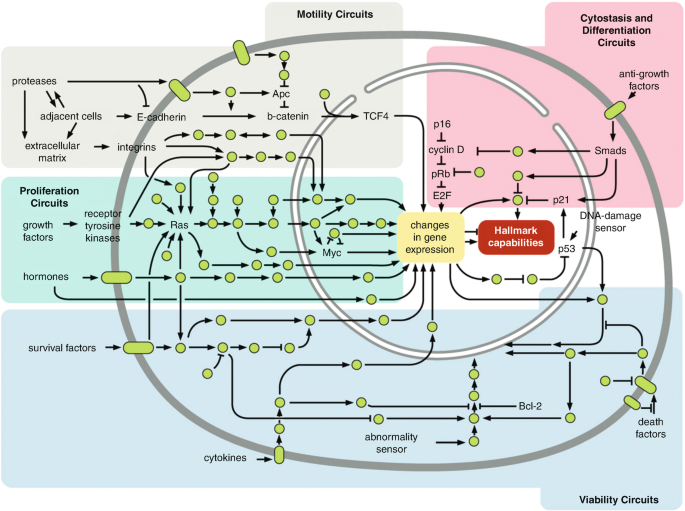
Cell Signalling (Oncology)
We study signal transduction in cells. We focus on the PI3K signalling molecules which are overactive in cancer and in overgrowth syndromes. We aim to understand PI3K action and use that for therapies

Common painkiller may help prevent cancer from spreading
Most cancer deaths occur because of metastasis, the process where cancer cells spread from the original tumor to other parts of the body.
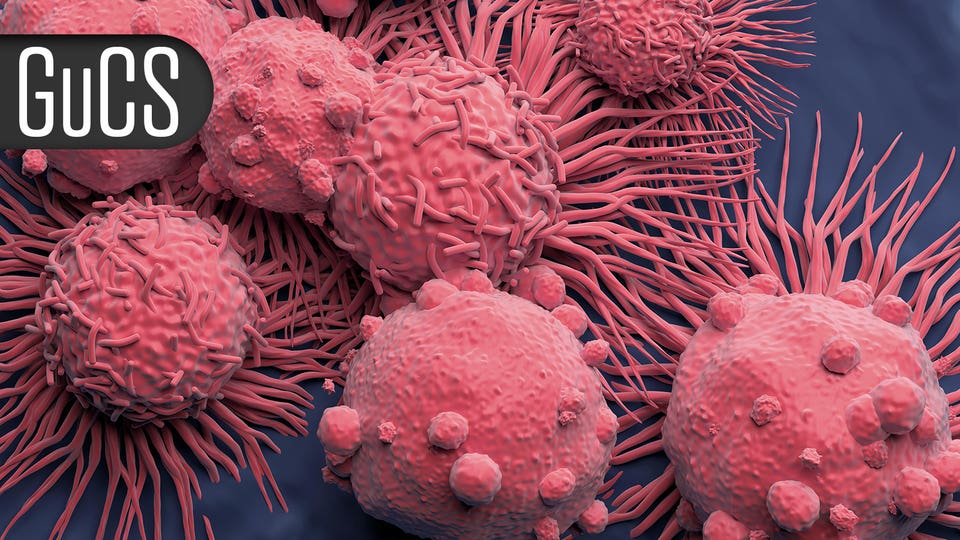
Metastasis-Directed Therapy for Prostate Cancer a Clear Winner in Meta-Analysis
PFS more than doubled with standard of care plus MDT, but practice continues to evolve
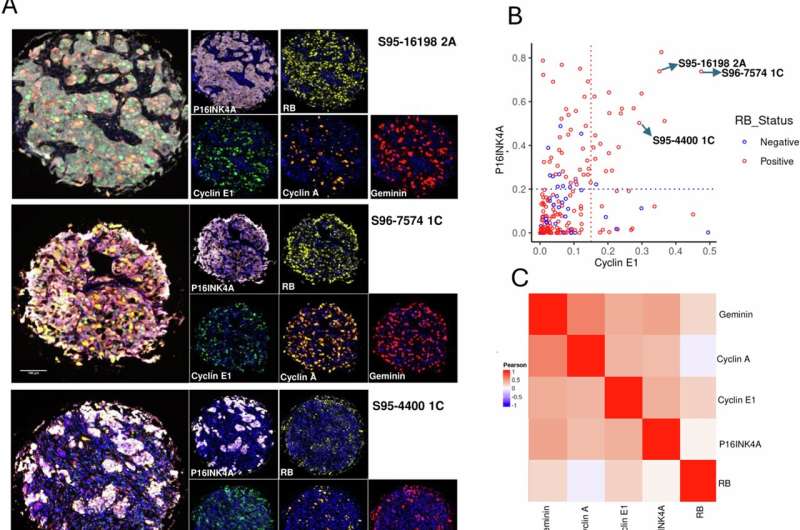
Scientists propose CDK2 enzyme as new target for cancer therapy
An enzyme called cyclin-dependent kinase 2 (CDK2) regulates the cell cycle and may have the potential to drive therapeutic resistance to common breast cancer drugs—including a class of targeted treatments known as CDK4/6 inhibitors.
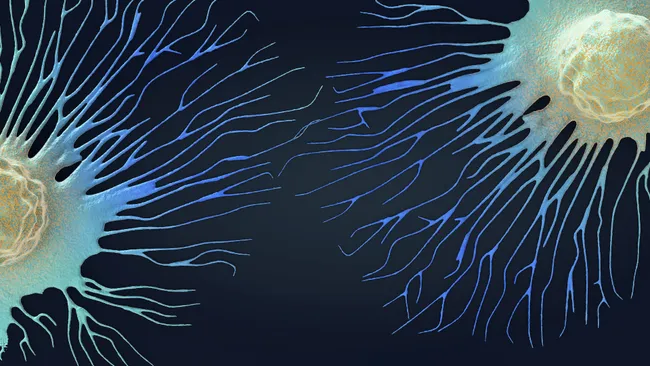
100-year-old heart drug made from foxglove may help ‘dissolve’ clumps of spreading cancer cells
By breaking up clusters of cancer cells, an old heart drug called digoxin may help stop tumors from spreading to other organs, a small trial shows.

Breakthrough: Cancer cells have a molecular ‘switch’ that could be rewired to behave normally
Cancer is sometimes described as the unchecked growth of abnormal cells. It is linked to all sorts of health issues, and doctors have spent years trying to find better ways to tackle it.

Innovative molecular therapies target and disrupt uncontrollable growth of cancer cells
wo new studies represent a big step toward developing innovative molecular therapies capable of disrupting the uncontrollable growth of cancers at their roots.

Research shows key cause of spread of aggressive prostate cancer
Scientists from MedUni Vienna have made an important discovery that could improve the way aggressive prostate cancer is diagnosed and treated.

Vitamin K Precursor Found to Target and Destroy Cancer Cells in Latest Research
According to the American Cancer Society, prostate cancer is the second-leading cause of cancer-related death in males in the United States, behind only lung cancer. Around 1 out of every 8 men will be diagnosed with prostate cancer at some point in their lives.
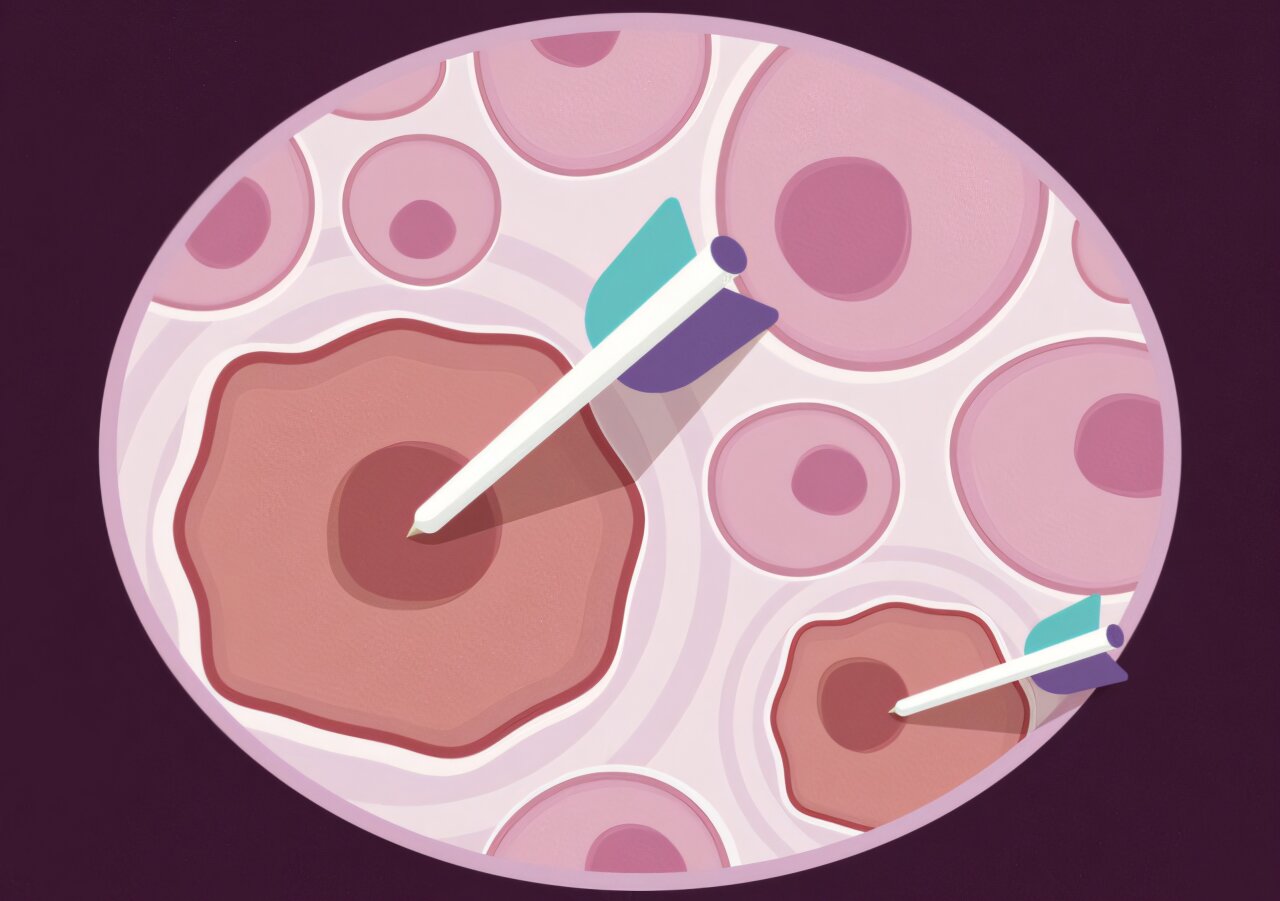
Mutations in two gene pairs point to a promising drug target in 5% of adult cancers
Scientists from the Cancer Dependency Map (DepMap) at the Broad Institute of MIT and Harvard and Columbia University have discovered that about 5% of adult cancers rely heavily on a gene called PELO to survive and that disabling the gene kills those cancer cells. These cancers have mutations in one of two genes, FOCAD or TCC37.

This protein discovery may change the treatment of colon cancer
Bowel cancer affects many individuals and often leads to serious health complications or death. Doctors have been seeking new approaches that can target the disease more precisely, and one recent finding has stirred a lot of interest.
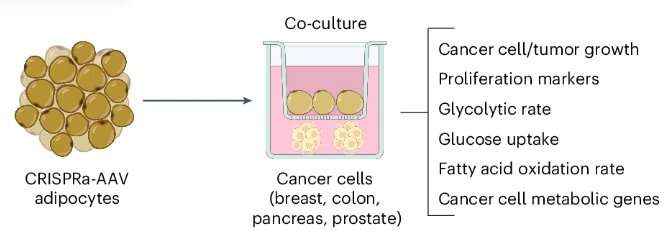
How hungry fat cells could someday starve cancer to death
Liposuction and plastic surgery aren’t often mentioned in the same breath as cancer. But they are the inspiration for a new approach to treating cancer that uses engineered fat cells to deprive tumors of nutrition.
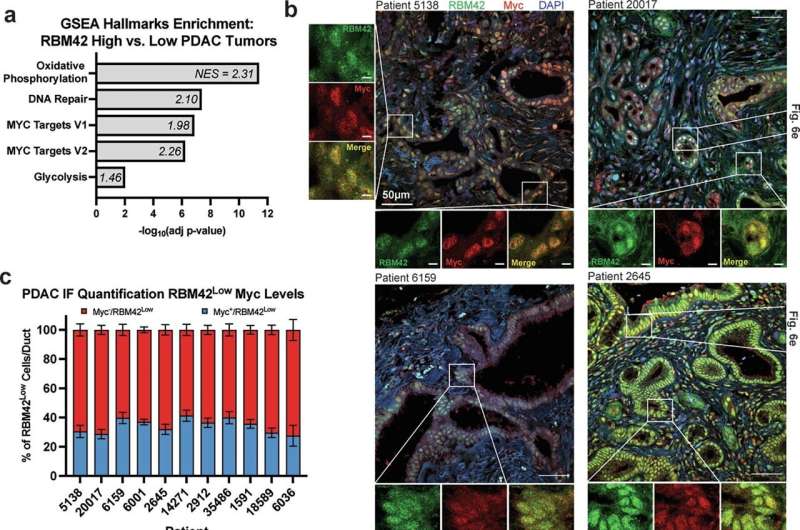
Disrupting the RBM42 protein could throw a wrench in the gears of cancer’s growth
For decades, scientists have tried to stop cancer by disabling the mutated proteins that are found in tumors. But many cancers manage to overcome this and continue growing. Now, UCSF scientists think they can throw a wrench into the fabrication of a key growth-related protein, MYC, that escalates wildly in 70% of all cancers. Unlike some other targets of cancer therapies, MYC can be dangerous simply due to its abundance.

Metastatic cancers: Targeting a protein that fuels treatment-resistant tumors may be key to better outcomes
One of the biggest challenges in cancer treatment is addressing the ability of cancer cells to adapt and become resistant, reducing the effectiveness of therapies over time.
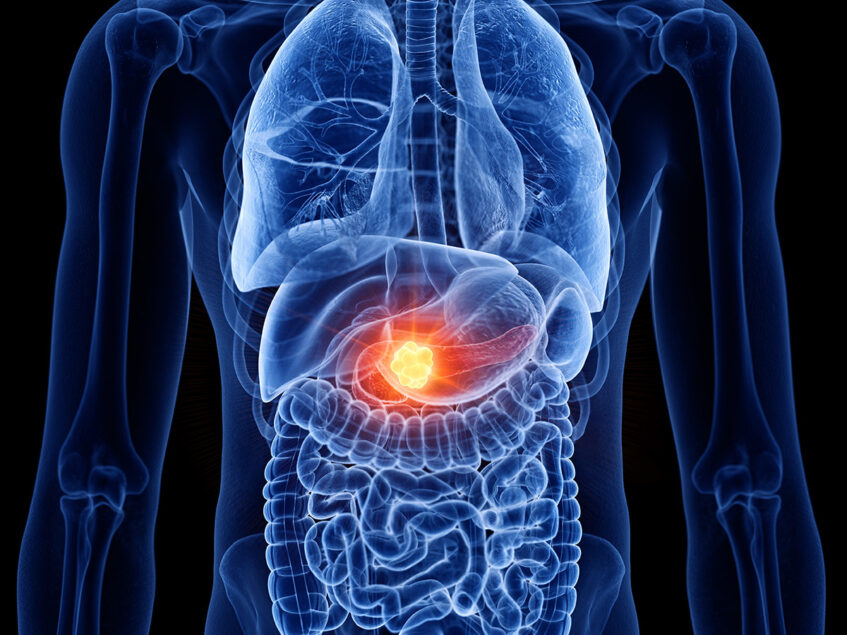
Combined strategy can prevent pancreatic cancer drug resistance
Understanding the mechanisms of resistance to cancer treatments is necessary to find effective therapies at different stages of the disease. Scientists at UT Southwestern Medical Center studied the most frequent mutation in pancreatic ductal adenocarcinoma (PDAC), identified an escape route to a therapy in clinical trials, blocked it with another experimental compound and reduced tumors in mice.







